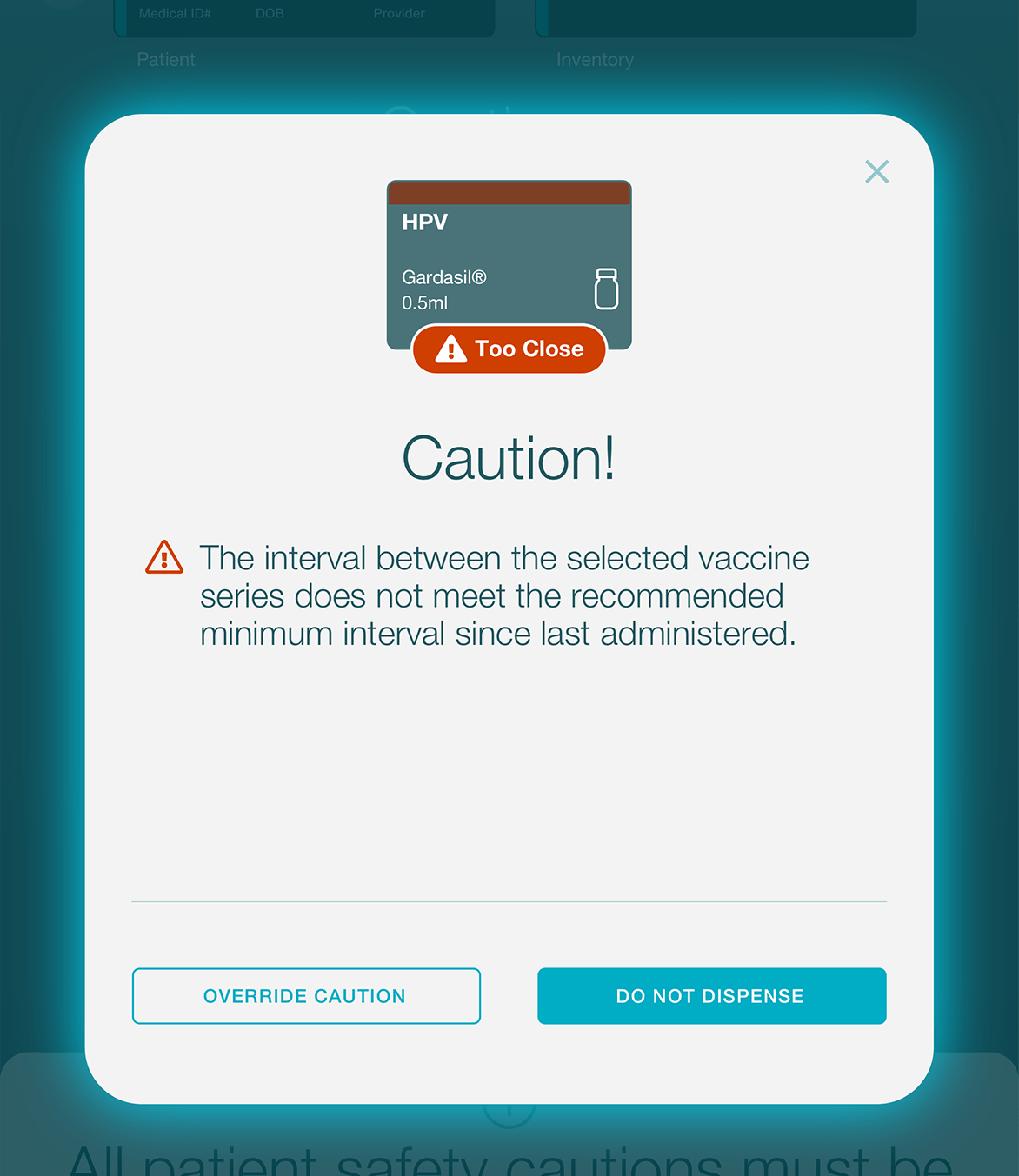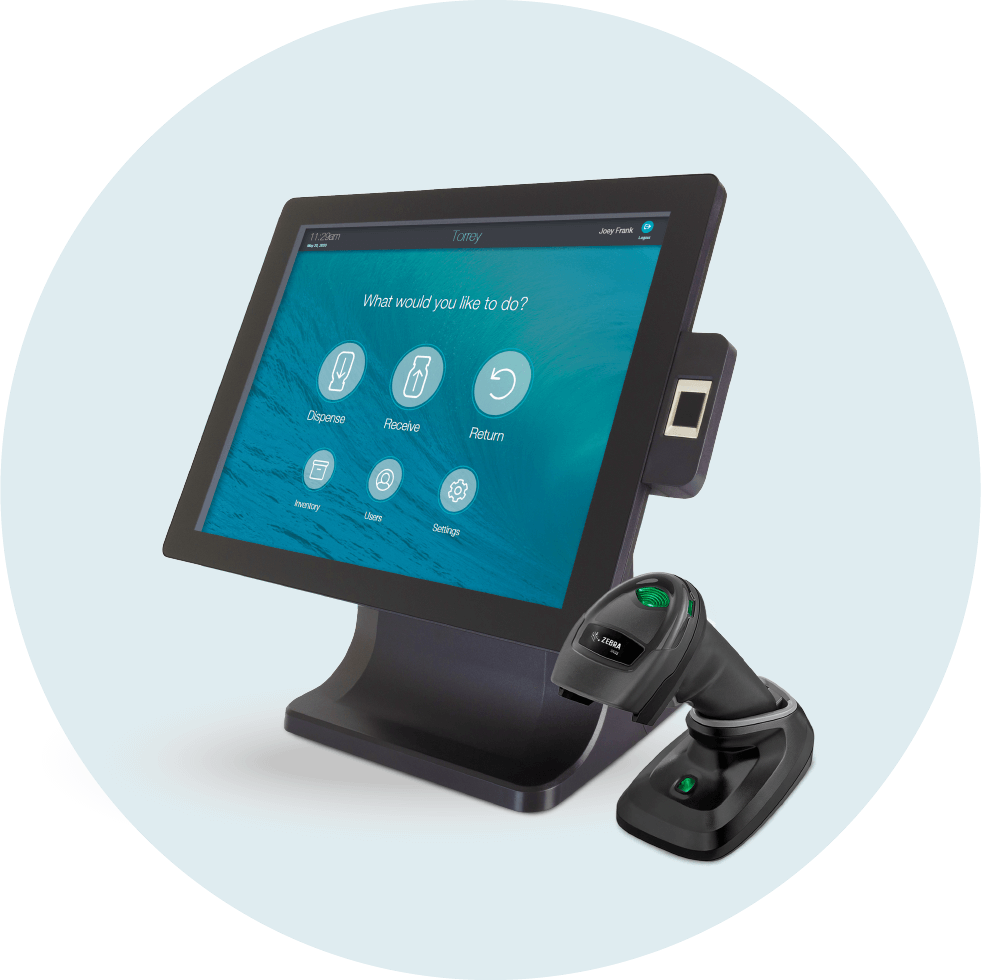A recent study published in Pediatrics revealed that a notable percentage of vaccine doses are administered outside of the Advisory Committee on Immunization Practices (ACIP) recommendations, leaving children at risk for vaccine-preventable diseases. These “invalid” doses, given at incorrect times or under less-than-ideal conditions, leave children vulnerable to vaccine-preventable diseases until the series is repeated. While pediatric healthcare providers strive to adhere to rigorous standards, various challenges can disrupt the perfect timing and storage that these vaccines require.
Invalid Vaccine Doses in Children Explained
The study analyzed vaccination histories from the National Immunization Survey-Child (NIS-Child) for children aged 19–35 months from 2011 to 2020. Key findings include:
- Prevalence of Errors: Approximately 15.4% of children received at least one vaccine dose that did not align with ACIP guidelines. Despite fluctuations over the years, the persistence of these errors remains a critical concern.
- Common Issues Identified: Multi-dose vaccine series—such as rotavirus (RV), Haemophilus influenza type b (Hib), Hepatitis A (HepA), and Hepatitis B (HepB)—were most affected. Notable errors included administering the final HepB dose too early and giving the third Hib dose before the recommended minimum age.
- Contributing Factors: Factors such as strict dosing schedules, the complexities of combination vaccine products, and disruptions due to changes in healthcare providers can all lead to these discrepancies.
The Importance of Adhering to ACIP Guidelines
ACIP guidelines are the result of extensive research designed to ensure optimal immune response and lasting protection. When vaccines are administered outside these established parameters, they are considered “invalid,” meaning children may not be fully protected until the vaccination series is correctly repeated. For healthcare providers, this highlights the importance of meticulous vaccine management—a task that is as challenging as it is essential.
Accurate vaccine administration is critical for protecting children from preventable diseases. Even minor errors in timing or storage can render a dose “invalid,” potentially compromising a child’s immunity. For pediatric healthcare providers, ensuring every vaccine dose is administered correctly is paramount. Here, we outline the best practices for preventing invalid vaccine doses, empowering you to enhance the safety and effectiveness of your immunization programs.
Leverage Advanced Technology for Accurate Vaccine Management
Implementing Automated Tracking Systems
Utilize advanced systems like TruMed’s AccuVax to automate vaccination schedules and documentation. With real-time alerts and integrated scheduling:
- Reduce Human Error: Automated alerts ensure vaccines are administered according to the ACIP-recommended timelines.
- Enhance Documentation: Seamless record-keeping minimizes manual errors and simplifies compliance reporting.
Optimizing Storage with Temperature Monitoring
Proper vaccine storage is essential. TruMed’s AccuVax offers state-of-the-art automated temperature control and monitoring, ensuring:
- Optimal Conditions: Continuous tracking of temperature and humidity levels prevents storage-related errors.
- Immediate Alerts: Real-time notifications enable prompt corrective actions if conditions deviate from the ideal range.
Strengthen Communication and Training
Continuous Education on ACIP Guidelines
Regular training for your staff is crucial. Consider:
- Routine Updates: Stay informed about changes in ACIP recommendations and vaccine schedules.
- Interactive Training Sessions: Use case studies and real-world examples to emphasize the importance of proper timing and storage.
- Clear Protocols: Develop easy-to-follow guidelines for handling combination vaccines and multi-dose series.
Establish Robust Internal Processes
Standardize Operating Procedures
Develop and implement standardized protocols for every aspect of vaccine management:
- Clear Scheduling Guidelines: Ensure that all team members are aware of the critical timing for each vaccine series.
- Regular Audits: Conduct routine audits to verify compliance with ACIP guidelines and identify potential areas for improvement.
- Feedback Mechanisms: Encourage staff to report and review any discrepancies or near-misses to continuously refine procedures.
Embrace Catch-Up Scheduling When Needed
Despite best efforts, delays may occur. When they do:
- Quickly Activate Catch-Up Protocols: Implement ACIP-approved catch-up schedules promptly to ensure children remain protected.
- Monitor Progress: Use technology to track catch-up appointments and follow-up doses, ensuring timely completion of the vaccine series.
Workflow guidance to increase patient safety and reduce risks.
Avoid common vaccine errors.
Prior to dispensing vaccines, AccuVax performs safety checks to find possible cautions. The Patient Safety Checks warn if the patient information conflicts with any of the following criteria: a vaccine’s indicated age or gender, a vaccine’s minimum dose time interval, dose series count exceeds the maximum number, and duplicate vaccines.
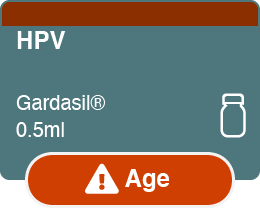
AGE CAUTION: Dosage is not recommended for patient age.
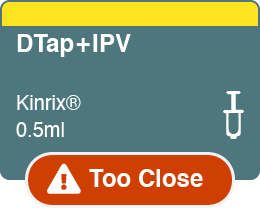
TOO CLOSE: Interval time too close since last administered in series.
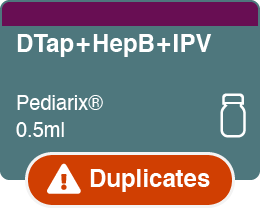
DUPLICATES: Two or more brands selected are for the same disease.
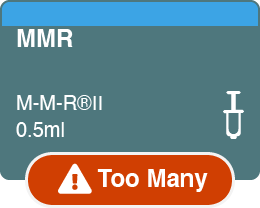
TOO MANY: Patient has already received all doses in suggested series.
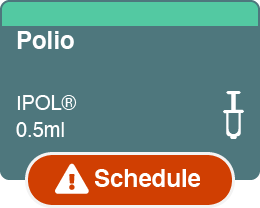
SCHEDULE: Immunization schedule checks on every dispense.
Commitment to Pediatric Immunization Excellence
Preventing invalid vaccine doses is a critical component of pediatric care. By leveraging advanced technologies like AccuShelf and AccuVax, enhancing staff training, and establishing robust internal processes, you can safeguard the health of your patients and maintain the integrity of your immunization program.
AccuVax, an automated vaccine management system from TruMed, is designed to ensure that every pediatric vaccine administered remains effective. By automating temperature control, AccuVax continuously monitors storage conditions and provides instant alerts for any deviations—ensuring that vaccines are maintained within the required temperature range to protect their integrity. This reliable temperature management minimizes the risk of vaccine spoilage and invalid doses, a critical factor in pediatric immunizations. Additionally, AccuVax simplifies inventory management with real-time tracking, reducing waste and preventing stockouts, so providers always have the necessary vaccines on hand to keep immunization schedules intact. Automated patient safety alerts, barcode scanning, and detailed reporting further streamline workflows and guarantee precise adherence to ACIP guidelines, thereby reducing human error.
At TruMed, we’re dedicated to empowering pediatric healthcare providers with innovative solutions that streamline vaccine management and promote immunization excellence. By adhering to these best practices, you help ensure that every vaccine administered is a step toward a healthier, more protected future for our children.
Discover how TruMed’s AccuShelf and AccuVax can transform your vaccine management practices—contact us today to learn more and enhance your immunization strategy.



